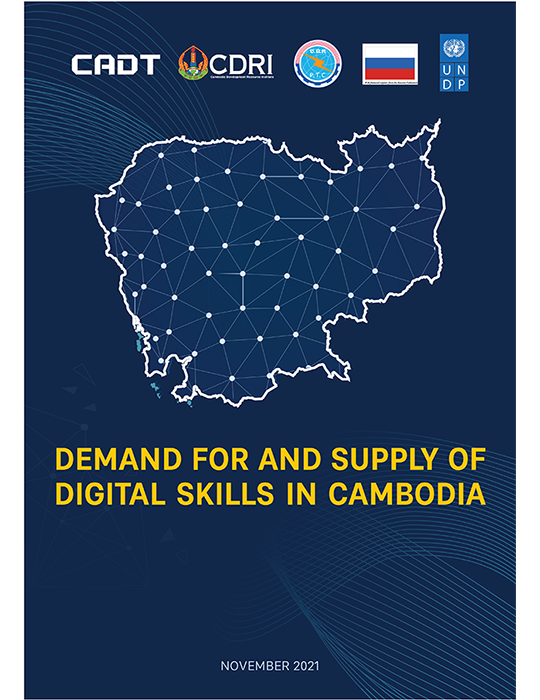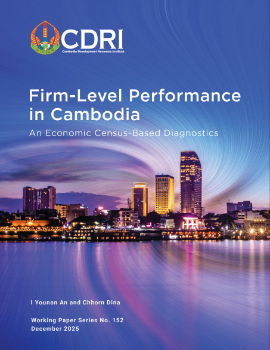
Abstract/Summary
The study assesses current and future demand for and supply of digital and ICT skills and investigates the challenges firms of all sizes, universities, and TVET institutions face in preparing themselves and their students for digital technology adoption under the framework of the Fourth Industrial Revolution (4IR). A mixed-methods approach of quantitative and qualitative analyses is used. The quantitative analysis relies on two survey datasets: firms and students/graduates. The following findings were observed:
- Businesses in information and communication technology and employment opportunities are thriving. The top five services or products ICT firms have offered include retail sales and maintenance of ICT devices; software, application and ICT systems (i.e., human resources, payroll, tax, accounting, and finance); graphic and multimedia design; network, telecommunications, and internet; and digital marketing.
- While not yet currently in high demand, new businesses in cloud services, data management systems, and financial technology (fintech) are emerging given the fast-changing technological advancement.
- Firms are optimistic that their demand for ICT-related skills and occupations will increase in the next two years at an average rate of 30 percent per annum. Future occupations in demand include ICT sales professionals, software and application developers, e-marketing professionals, and web developers and programmers. Although it is not directly evident from the results of the firm survey that there are future demands for data science specialisation, demand for the skill was raised to some extent by the key informants.
- ICT graduates have higher employment opportunities with relatively higher wage premiums than those of non-ICT graduates with similar levels of education, experience, and other socio-economic characteristics, at least in the short term. The average wage premium of graduates with ICT majors is estimated at around 10 percent.
- Despite the constant growth, tertiary enrolment in STEM majors, including ICT majors, is relatively low in Cambodia. Among the examined individual and family factors, gender, age, and self-efficacy in mathematics are found to be good predictors of enrolment in ICT-related majors. Enrolment in STEM majors continues to be male-dominated, while female students mainly enrol in the non-STEM majors of business, accounting, and other social science majors.
- Nearly one-fourth of ICT curricula at higher education institutions (HEIs) is devoted to general subjects. Very few universities provide dedicated courses related to soft skills such as critical thinking or problem-solving skills. In addition, subjects related to new technologies such as machine learning, artificial intelligence, fintech, and data science are limited and almost non-existent for elective courses. This happens amid increased global demands for such skills which might further intensify skills shortages in Cambodia if interventions by the government and relevant stakeholders to equip more young Cambodians with knowledge and skills in advanced technologies are not put in place in a timely manner.
- Higher education institutions face several challenges in keeping up with the current trends of technological changes. These include limited support from the government, limited financial and human resources, and uneven ability and preparedness of students who enrol in the STEM programmes in terms of mathematics and digital literacy.
- Related to job searching, students’ anxieties about their future career prospects include labour market competition, lack of work experience, and limited English proficiency. To connect students to the world of work, many schools have made internships compulsory and established offices to support students’ career prospects.



